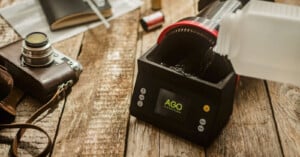
AGO Film Processor Is an Automated Tool for B&W, C-41, and E-6 Films
The AGO Film Processor aims to be an analog photographer's "gateway to effortless film development for B&W, C-41, and E-6 films."

The AGO Film Processor aims to be an analog photographer's "gateway to effortless film development for B&W, C-41, and E-6 films."

Imagen has added new features to its artificial intelligence-powered (AI) photo editing solution, ImagenAI, including subject mask editing and the ability to share an AI profile with additional photographers.
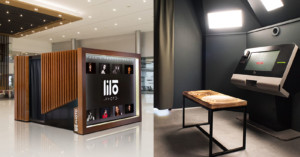
LiloPhoto bills itself as the world's first professional self-portrait studio where anyone can get high-quality portraits taken without needing a photographer.

Tech startup BOOM, which said it wanted to be the "Amazon for photography," has allegedly failed to pay photographers that it inherited from its acquisition of LemonOne due to financial difficulties.
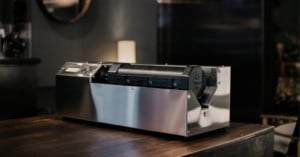
Undeterred by the failure to reach its funding goal on Kickstarter last year, FilmNeverDie has unveiled its redesigned, "streamlined" Compact Processor 800 "take two."

ImagenAI is a personalized photo editing assistant that is designed to learn individual photographer's styles using artificial intelligence (AI) to help make applying bulk edits to entire catalogs quick and easy. So, does it work, and are we about to enter into a new age of AI editing?
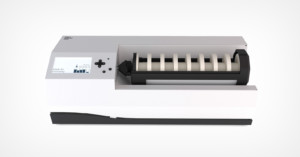
Melbourne, Australia-based professional photo lab & retail store FilmNeverDie has announced the new Compact Processor 800 (CP800) through a Kickstarter campaign. The new automated rotary drum film processor is capable of handling black & white, color, slide, and motion picture film.
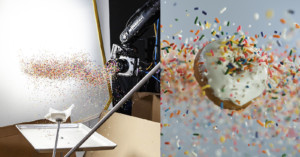
Intelligent robot technology has expanded beyond cinematography and has found its place in photography now, too, as shared by a photo and video production company that has started to use one to achieve shots and angles that would be hard to replicate manually.

Boom, a Milan-headquartered tech startup, has raised $7 million in Series A funding based on its proprietary technology that is said to provide a way for companies to purchase "high-quality" images affordably, on a global scale.
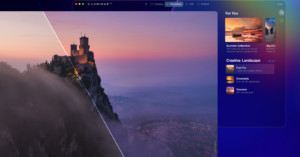
As Skylum continues to prep for the full launch of its AI-based photo editor, Luminar AI, the company has reveled more details about how it will work. Namely: Skylum is showing off something called 'Adaptive Templates,' which are essentially next-level presets with some machine learning smarts.
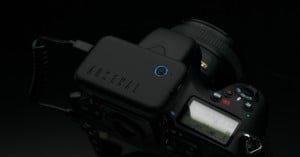
Arsenal—the "camera assistant" gadget that uses AI to pick your camera settings for you—is back on Kickstarter. After successfully funding and shipping version 1 to over 15,000 backers, creator Ryan Stout is back with Arsenal 2, and he's already raised nearly $4 million!

Skylum has announced a new, AI-first version of its Lumiar photo editor. Dubbed Luminar AI, the program takes all of the machine-learning tools from Luminar 4, adds some more, and puts them all into a new app and plugin that's all about "reinventing" traditional photo editing.
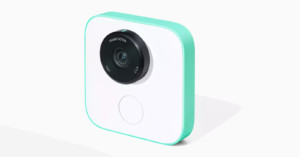
While users were distracted by the new Pixel 4 and other gadgets debuted at this week's Google event, the company quietly discontinued the Google Clips AI-powered lifelogging camera. After poor reviews and even worse adoption, it seems Google is giving up on the camera altogether.

Want to have your photos critiqued... by a computer? Keegan is a new online personal photo coach that can do that. Show Keegan one of your photos, and he'll do his best to give you technical feedback to improve your photographic skills.
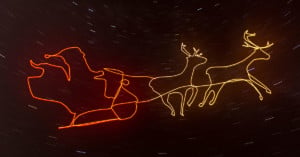
German drone manufacturer Ascending Technologies is celebrating Christmas season this year by doing some light painting photography. Each of the photos they've made was painted by an automated drone that was programmed to follow waypoints in the sky.
The company believes this is the first drone light painting project of this kind.
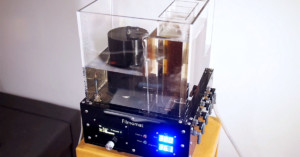
This is incredible: German photographer Lukas Fritz wanted an easier way to process his film at home, so he spent a year creating the Filmomat, a fully automatic film processor that can handle everything from B&W 35mm film to 5x7-inch color slides.
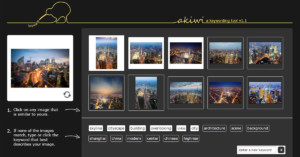
Akiwi is a new website that's designed to help you keyword photographs with minimal effort. It's a semi-automated image tagging system that is easier than manually tagging and more accurate than automatic image recognition.

What will we do with all the data we accumulate from photos? On a daily basis, Internet juggernauts like Google, Yahoo, Facebook or Microsoft use highly sophisticated deep learning engines to better understand the content of billions of images uploaded, liked and shared. For now, it is to better serve advertising, but what else can be done?
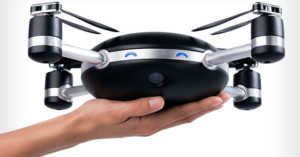
Lily is a new robotic camera drone that aims to shake up not only the drone industry, but the camera industry as a whole. It's the world's first "throw-and-shoot camera" that lets anyone capture cinematic aerial photos and videos without needing to do any piloting.
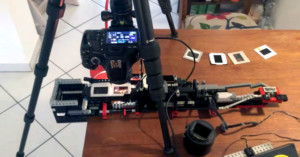
This is pretty impressive: photographer Pascal Kulcsar needed to digitize some old slide film left behind by his grandfather. Rather than purchase a film scanner, Kulcsar decided to combine his technical ingenuity and love for LEGOs to create a DIY slide film scanner using LEGO pieces.
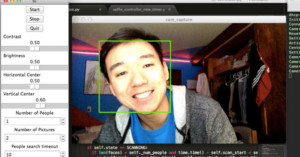
Cornell offers a course on designing with microcontrollers, and this year's final project submissions featured a couple of groups who decided to build robotic photographers that help capture selfies.
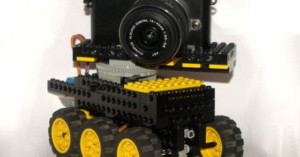
In the past, we've shared a few different ways to make a DIY dolly, but today's version is a bit more... childish than those. That's because this automated and motorized dolly is made, not out of parts you'd find at a hardware store, but a toy store. It's a dolly made of LEGO.

You might remember the photo above from last year. For a while, it circulated the web like mad, claiming to show Hurricane Sandy bearing down menacingly on the Statue of Liberty. But if you've read our previous coverage on the photo, you'll know that it is, in fact, a fake -- a composite of a Statue of Liberty picture and a well-known photo by weather photographer Mike Hollingshead.
Photo fakes like this wind up going viral online all the time, often helped along by Twitter where retweet upon retweet puts it in front of thousands of unsuspecting people. Having had enough, a group of researchers from the University of Maryland, IBM Research Labs and the Indraprastha Institute of Information Technology are trying to do something about it.
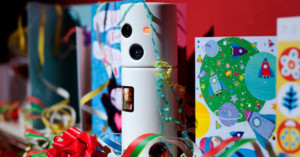
photoBot is a new photography robot designed by Tommy Dykes, a designer and PhD student at Northumbria University. It constantly scans a room for photo ops by turning its head in a manner reminiscent of R2-D2 from Star Wars (which, in case you haven't heard, is now owned by Disney).
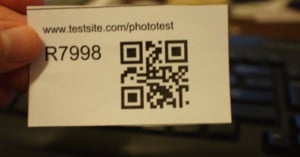
Large portrait taking gigs can be a bit of a nightmare. If you’re taking multiple portraits of a few …
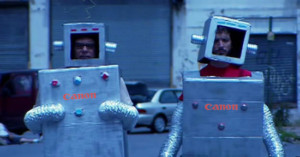
In sharp contrast to the Leica way of doing things by hand, Canon has just announced that …

ifttt (If This Then That) is a new service that lets you automate …
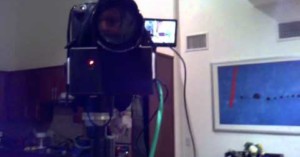
We've seen DSLR photo booth projects before, but usually they're just simple ways for guests at an event to take self-portraits of themselves. Kevin over at I Dream In Code actually made a fancy photo booth for his brother's wedding that prints out a nice keepsake for guests.
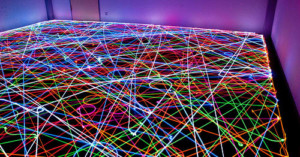
This light painting photograph was created by a group of students over in Germany using a swarm of seven Roomba automated vacuum cleaners. Each one had a different colored LED light attached to the top, making the resulting photo look like some kind of robotic Jackson Pollock painting. There's actually an entire Flickr group dedicated to using Roombas for light painting -- check it out of you have one of these robot minions serving you in your home.